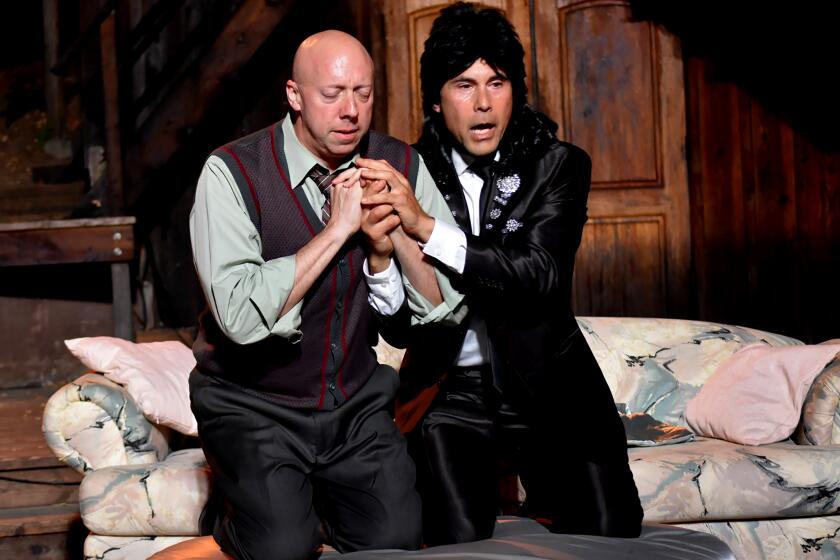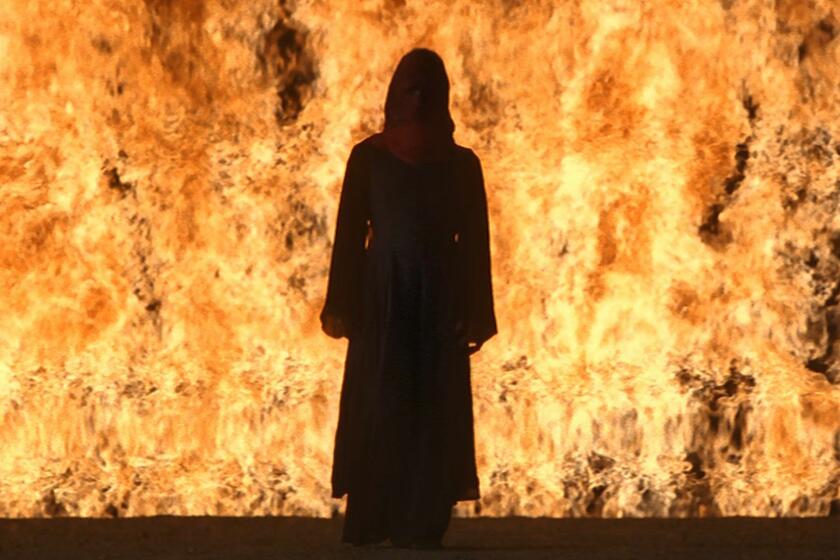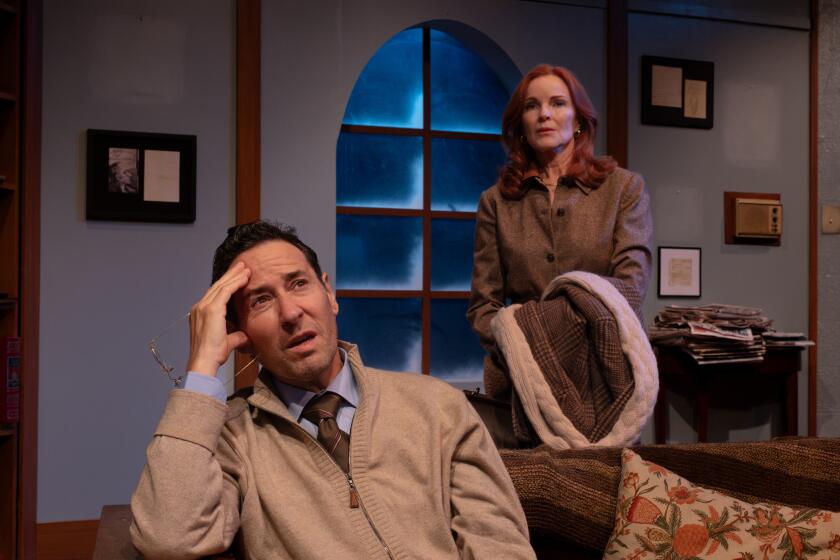A rending tale of ‘Raquin’
Critics have gone after Tobias Picker for not writing a powerful enough score for his opera “Therese Raquin,” which finished a four-performance run over the weekend at San Diego Opera.
That is not exactly the problem. Picker has written a strong score. But it is a strong symphonic score. The vocal lines are often secondary, dropped into the far more expressive orchestral fabric. Making matters worse, the composer doesn’t musically differentiate or distinguish the characters enough. They all begin to sound alike, swimming in a common orchestral stream.
With a libretto by Gene Scheer, the two-act opera is based on Emile Zola’s 1867 revolutionary novel, which was promptly denounced as pornography upon its publication because of its grim, clinical portrayal of adultery leading to murder and a double suicide.
Therese, married to the weak and sickly Camille Raquin, finds solace in the arms of her husband’s best friend, the sensual painter Laurent. The two drown Camille in the River Seine, marry but quickly grow to hate each other. They kill themselves in front of Camille’s mother, who has been rendered mute and paralyzed from a stroke upon learning the truth of her son’s death.
Picker’s opera -- a co-commission with Dallas Opera, where it premiered in December 2001, Montreal Opera and San Diego Opera -- is not the first staged version. Zola did that.
Marcel Carne made a film of it in 1953, starring Simone Signoret. The BBC did a miniseries starring Kate Nelligan and Brian Cox. A musical adaptation called “Thou Shalt Not,” directed by Susan Stroman, recently flopped on Broadway.
A new film version is slated to star Kate Winslet and Judi Dench.
“Therese Raquin” is Picker’s third opera. His first, “Emmeline,” caused quite a stir at its debut in Santa Fe in 1996. Los Angeles saw his second, a less effective children’s opera called “Fantastic Mr. Fox” in 1999. He is working on a fourth, a version of Theodore Dreiser’s “An American Tragedy” for the Metropolitan Opera to premiere in 2005.
Unlike some contemporary composers, Picker doesn’t distrust lyricism. He just distrusts vocal lyricism.
The orchestra gets most of the melodic material, while the singers declaim above them, often in ungrateful lines that tax their voices at extremes or demand their running a jagged course.
There are exceptions. Therese gets a full-fledged guilt aria in the second act. Camille reappears as a ghost to sing a histrionic aria denouncing the murderers. But the orchestra tells more and tells it more often. The composer seems freest and most expressive in the wordless interludes between the scene changes.
On Friday, Kirstin Chavez was strong, rather monochromatic but surprisingly sympathetic in the title role. Christopher Maltman was a hunky enough, strong-voiced Laurent. Both were making their San Diego Opera debuts.
As others have noted, Gordon Gietz, the original Camille, also in a local debut, was indeed too powerful vocally and physically to make a persuasive case for being a sickly mama’s boy that Therese would tire of. An intriguing paradox.
Josephine Barstow was an overbearing force as Madame Lisette Raquin, even after her “stroke.” Sheryl Woods, the original Suzanne Michaud, made the most of the secondary plot implied but not well realized by the Picker-Scheer team, of the conflict with her husband, Olivier Michaud (Kevin Langan). Peter Kazaras re-created his original role of the Monsieur Grivet with bluster.
The production, originally directed by Francesca Zambello and re-created in San Diego by Herbert Kellner, has several arresting aspects. From a rowboat raised high into the air, Laurent pushes Camille over into a suspended high-wire simulation of drowning. The wall behind the guilty couple’s bed -- tilted and already on the rocks -- also bleeds torrents of water. Marie-Jeanne Lecca created the evocative two-tiered period set, which splits apart after the murder. Mark McCullough designed the atmospheric lighting.
Karen Keltner conducted with sweep and authority.
More to Read
The biggest entertainment stories
Get our big stories about Hollywood, film, television, music, arts, culture and more right in your inbox as soon as they publish.
You may occasionally receive promotional content from the Los Angeles Times.






